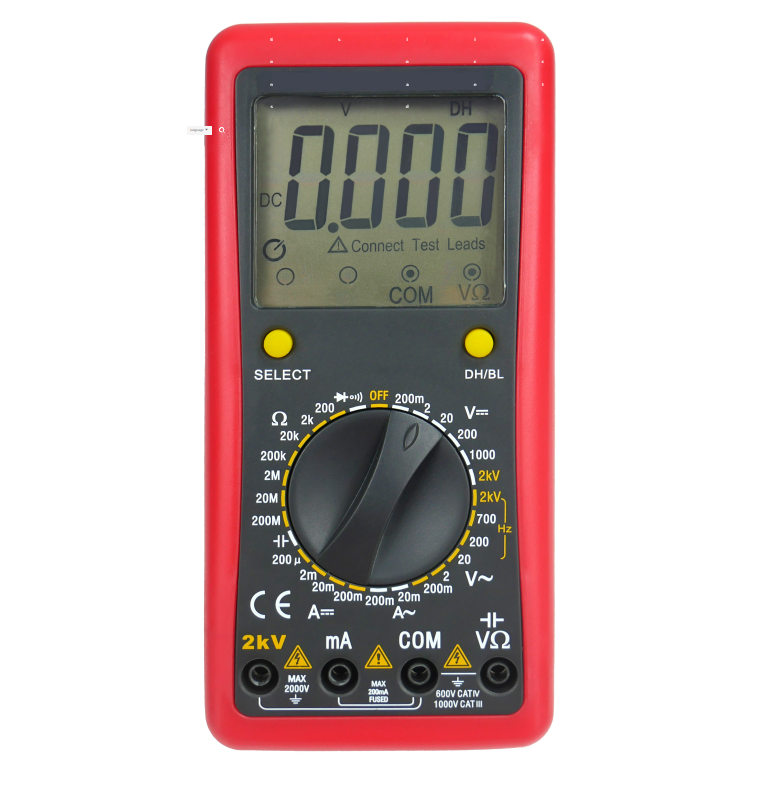Dec. 06, 2023
Measurement & Analysis Instruments
In the ever-evolving landscape of electronic measurement tools, choosing between a Digital Multimeter (DMM) and an Analog Multimeter (AMM) can be a pivotal decision for engineers, hobbyists, and professionals alike. In this comprehensive guide, we unravel the intricacies of these two devices, shedding light on their differences and helping you make an informed choice for your specific needs.
Digital Multimeters often hailed as the cornerstone of modern electronic testing, have revolutionized the way we measure electrical parameters. The hallmark of DMMs lies in their precision and speed. Unlike their analog counterparts, DMMs provide instantaneous, highly accurate readings displayed on a digital screen.

Precision: DMMs offer unparalleled accuracy, making them indispensable in applications requiring exact measurements.
Versatility: The versatility of DMMs extends to their ability to measure a wide range of parameters, from voltage and current to resistance and capacitance.
Ease of Reading: Digital displays eliminate the ambiguity associated with analog needles, ensuring clear and straightforward readings.
More details please contact SINODA
While digital technology has become ubiquitous, Analog Multimeters still hold a unique charm and cater to specific preferences. AMMs operate on the fundamental principle of a moving needle over a graduated scale, providing a visual representation of the measured quantity.
Visual Intuition: The moving needle of an AMM allows users to intuitively grasp changes in electrical parameters, adding a visual dimension to measurements.
Durability: Analog Multimeters are often praised for their robustness and resilience in challenging environments.
Cost-Effectiveness: In certain scenarios, where precision is not the utmost priority, AMMs can be a cost-effective alternative without compromising on functionality.
If your applications demand precision, speed, and a broad range of measurement capabilities, a Digital Multimeter is the optimal choice. DMMs excel in scenarios where rapid and accurate readings are essential, such as troubleshooting complex circuits or validating electronic components.
For those who value the visual feedback and seek a more straightforward, cost-effective solution, Analog Multimeters prove their worth. They are particularly beneficial in educational settings, where a visual representation aids in understanding fundamental electrical principles.
As technology advances, the line between DMMs and AMMs continues to blur. Manufacturers are incorporating features that combine the precision of digital displays with the visual intuition of analog needles, offering the best of both worlds.
In the realm of Electric instruments and meters, the choice between Digital and Analog Multimeters ultimately boils down to your specific requirements. While Digital Multimeters dominate the landscape with their precision and versatility, Analog Multimeters maintain their relevance, appealing to those who value simplicity and visual feedback.
If you are interested in sending in a Guest Blogger Submission,welcome to write for us!
All Comments ( 0 )